Maria Fasolino, Ph.D., is the Program Director for ASPE. She obtained her Ph.D. in Neuroscience at the University of Pennsylvania under the mentorship of Zhaolan (Joe) Zhou, Ph.D., where she studied the molecular consequences of patient-associated mutations in MECP2 that cause Rett Syndrome, a rare neurological disorder with autistic-like features. Maria continued her training as a postdoc in the laboratory of Golnaz Vahedi, Ph.D., at the University of Pennsylvania, where she investigated the etiology and pathogenesis of type 1 diabetes, a complex autoimmune disease. Prior to joining ASPE, Maria was a preclinical and clinical product manager for a neuromodulation device company. Maria applies her training and experience to coordinate the various aspects of ASPE to ensure that program objectives are met.
Staff and Trainees
Program Director

Administrative and Outreach Coordinator

Emily Colón, M.A., is the Administrative and Outreach Coordinator for ASPE. With an M.A. in Writing, a B.A. in Psychology, and Certificate in Public Relations, Emily merges her diverse educational background and extensive outreach experience to formulate multimedia content related to the ASPE Study’s participant recruitment and external communications. She is particularly motivated to provide accessible information for marginalized groups within the broader autism community, liaising with various community organizations to develop stronger supports. As an undergraduate, Emily studied pre and post-pandemic mental distress in college students, with a focus on traumatic stress, anxiety, and depression with Dr. Eve Sledjeski.
Postdoctoral Fellows
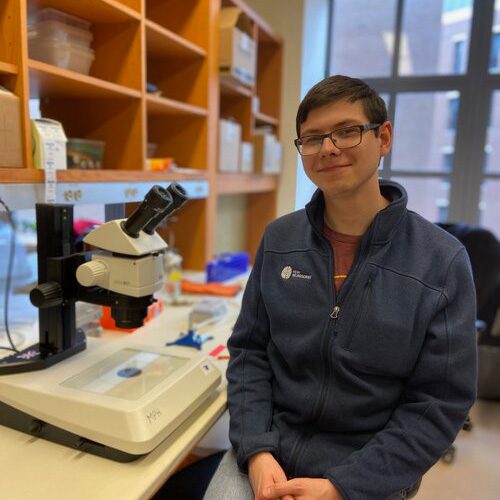
Brandon Bastien, Ph.D., received his Ph.D. in January in the Neuroscience Graduate Group and is a member of ASPE’s Hart Lab. Brandon graduated from Swarthmore College with a degree in neuroscience with high honors. Since joining the Hart lab, his focus has been on defining the circuitry underling how C. elegans respond to food deprivation stress and how certain synaptic proteins, some of which have orthologues in humans (like neurexin), and neuromodulators may distinctly act within this behavior-generating circuit.
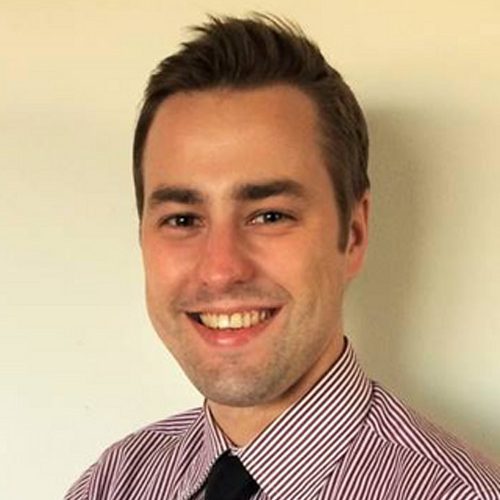
Philip Campbell, M.D., Ph.D. is a psychiatrist-scientist interested in the cellular and molecular mechanisms of neurodevelopmental disorders. Using mutagenesis, behavioral phenotyping, and brain imaging approaches, he is studying the 22q11.2 deletion syndrome, a risk factor for multiple neurodevelopmental disorders including autism and schizophrenia, with the ultimate aim to identify novel molecular targets for therapeutic intervention.
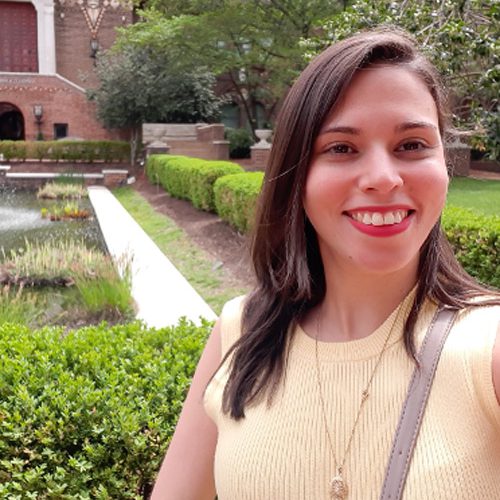
Thaise Carneiro, Ph.D, is a postdoctoral researcher for the ASPE study. She earned her bachelor’s degree in biomedical science from the University of Rio Grande do Norte, Brazil. Her academic journey continued with a master’s degree from the University of Sao Paulo, where she focused on identifying genetic rare variants associated with Intellectual disability. For her Ph.D., Thaise delved into the intricacies of RNA-seq and exoma data analysis, specifically focusing on thyroid cancer data at the Federal University of Sao Paulo, Brazil. Building on her expertise, she pursued additional training as a postdoctoral associate at the Children’s Hospital of Philadelphia. In this role, she worked in the Center for Applied Genomics group, engaging in a project centered around gene therapy for a rare neurological disease.

Kyuhyun Choi attended Kyung Hee University in Korea for their undergraduate training and was granted a PhD degree in 2016. Their dissertation research focused on defining neural circuits important for the interplay between learning and emotion. In particular, Kyuhyun used slice electrophysiology and in-vivo optogenetics to study intra-amygdala and septo-habenular circuits. Kyuhyun joining the Fuccillo lab in mid-2016 to extend their knowledge about the function of disease-associated molecules in neural circuit function. Currently they are working to understand the contribution of fronto-striatal sub-circuits to goal-directed behavior.
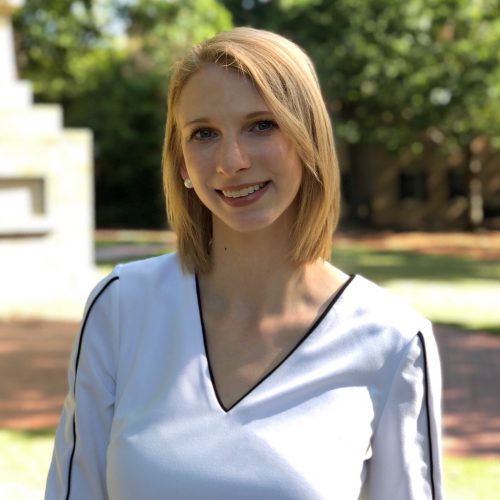
Mara Cowen, Ph.D., received her Ph.D in Neuroscience in January at the University of Pennsylvania and is currently working in Mike Hart’s lab. She received her Bachelor of Science in Developmental Neuroscience from the University of South Carolina, where she conducted research on the molecular mechanisms of rare neurodevelopmental disorders using human induced pluripotent stem cells. In the Hart lab, Mara is studying the effect of mutations in the autism-related gene, Neurexin, on social behavior, stress response, sleep, and neuronal morphology in C. elegans.
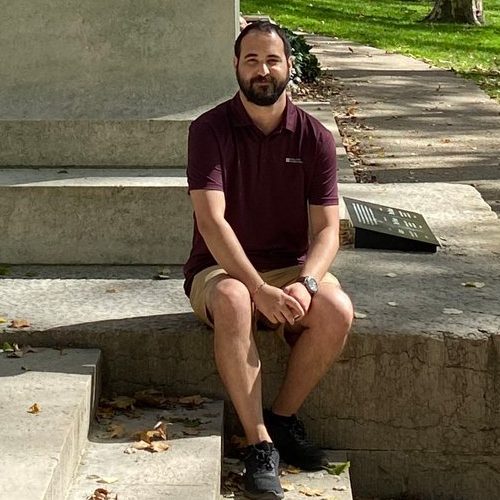
Dustin Haskell graduated from Central Michigan University in 2014 with a Bachelor of Science in Biomedical Sciences. He remained at CMU in the lab of Dr. Jennifer Schisa studying the effects of microtubule dynamics and motor proteins on the assembly of RNP granules in aged oocytes, and graduated with a Master’s of Science in 2016. From there he entered graduate school at Kansas State University in the lab of Dr. Anna Zinovyeva, studying the combinatorial effects of RNA-binding proteins and microRNAs on the control of gene expression and development in C. elegans. In 2021, Dustin graduated with his Ph.D. and joined the Hart lab. Here he has focused on understanding how human disease-derived variants of synaptic genes can effect behavior, as well as uncovering gene expression profiles in single neurons types and in variable conditions. Outside of lab, Dustin enjoys watching movies, reading, and exploring the Philly architecture and food scene.

Joanna Medina, Ph.D. is a postdoctoral fellow working with Dr. Zhaolan (Joe) Zhou to investigate the genetic underpinnings of ASD. She received her Ph.D. in Behavioral Neuroscience from the University at Albany, where she studied the interactions of stress and neuroendocrine-immune mechanisms underlying postpartum depression in a rat model. In the Zhou lab, Joanna is investigating the effects of Neurexin mutations on ASD-relevant behavioral phenotypes and their potential reversibility in mouse models.
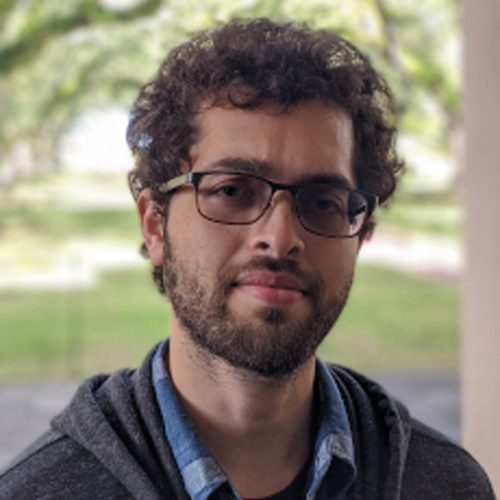
Alekh Paranjapye, Ph.D., received his B.S. in microbiology with a minor in philosophy from the University of Washington. He then worked at the Institute for Systems Biology in Seattle as a research assistant before going on to receive his Ph.D. in Genetics and Genome Sciences from Case Western Reserve University under the mentorship of Dr. Ann Harris. There, he applied both bench and computational techniques to study chromatin dynamics and gene regulation in human lung epithelial cells, with additional focus placed on the epigenetics of cystic fibrosis.

Jacqueline Shinall, Psy.D.,M.S., is a postdoctoral fellow in clinical psychology working with Dr. Brodkin. She completed her doctorate in clinical psychology at Rutgers University, Graduate School of Applied and Professional Psychology, and her Masters in Neuroscience from Columbia University’s Teachers College. Jacqueline’s clinical work and research has focused on the diagnostic and assessment measures and procedures for adults seeking an autism diagnosis. She is interested in understanding the experiences of individuals that receive an autism diagnosis as adolescents or adults and, in turn, she hopes to identify the most accurate assessments for autism in previously undiagnosed adults. Jacqueline is also hoping to continue helping autistic adults overcome mental health difficulties and to reduce stigma and misconceptions about autism in adulthood.

J. Dylan Weissenkampen (van Kampen), Ph.D., is a postdoctoral researcher working with Dr. Maja Bucan to study the genetic underpinnings of ASD and the sleep disturbances frequently experienced by these individuals. He obtained his Ph.D. in Neuroscience while researching data integration methods for multi-ethnic GWAS of smoking addiction.
Graduate Students

Sean Louzon received his B.S. in Neuroscience from the University of Michigan. In the lab, he is interested in aging-related disorders including neurodegeneration and how they relate to the field of epigenetics. Outside of lab, he enjoys going out for all-you-can-eat sushi and playing sports including soccer and volleyball.

Sarah Ferrigno attended the University of Connecticut for their undergraduate, where they double majored in Psychology and Molecular & Cell Biology. From early on, they were interested in understanding neuropsychiatric disease and during their undergraduate research they studied the neuropharmacology underlying motivational dysfunction in rodent models of Major Depressive Disorder. For Sarah’s graduate work, they are interested in elucidating how dysfunction of neural circuits in the basal ganglia play a role in neuropsychiatric and neurodevelopmental disorders.
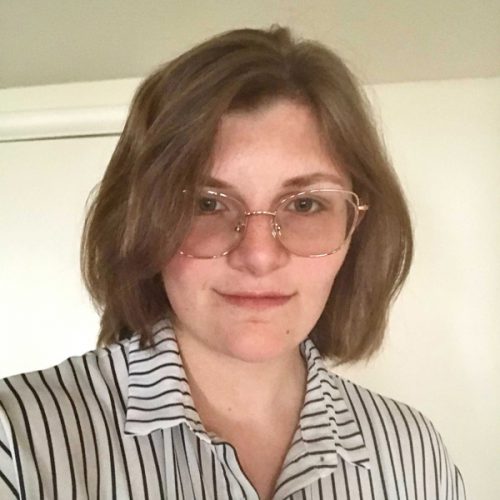
Jamie Galanaugh was born and raised in Philadelphia and attended undergrad here at Penn from 2016-2020. They obtained their BA in the Biological Basis of Behavior in the College of Arts & Sciences and are now working toward a PhD in Neuroscience in the School of Medicine. While in undergrad, Jamie trained in cellular and molecular methods at the bench and computational and clinical methods in the classroom. Now as a graduate student in the Fuccillo Lab, Jamie combines behavioral and electrophysiological techniques in the mouse to answer questions of neurodevelopment, both normal and abnormal, in a translationally relevant manner.
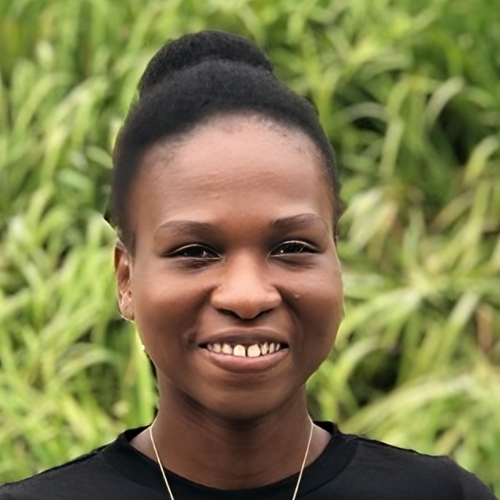
Sophia M. Villiere is a Ph.D. trainee in the Neuroscience Graduate Group at the University of Pennsylvania in Michael Hart’s laboratory. She received her Bachelor’s of Science in Biology at CUNY Medgar Evers College. As an undergraduate, she studied respiratory abnormalities, specifically central and obstructive apneas in epilepsy. She did a post baccalaureate at The Ohio State University where she studied cell adhesion molecules in the zebrafish model. In Michael Hart’s laboratory she is studying how autism associated gene mutations affect neuron morphology and behavior.
Data Analysts / Research Specialists
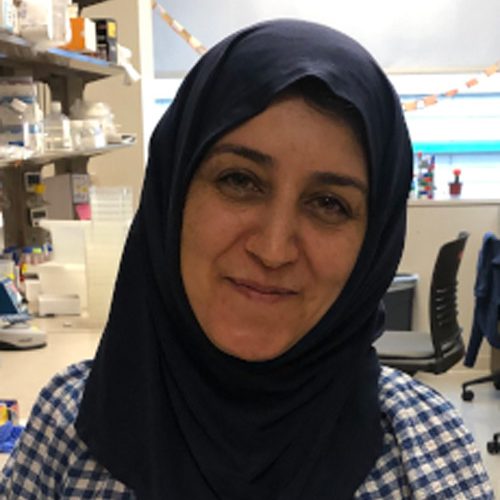
Rili Ahmad received her B.S. in Biology and B.A. in Psychology from George Washington University, and worked with Dr. Hu on molecular mechanism of Atherosclerosis. She then worked in the Laboratory of Neurogenetics at NIA/NIH to study the effects of mutations associated with Parkinson’s disease on protein function. From there she went on to the University of Miami where she studied snRNA biomarkers for early detection of Parkinson’s disease. In the Korb lab she serves as lab manager and does research on chromatin mutations that affect autism. On her free time, Rili has a passion for community service and is an active member of the UPENN community outreach program PENN CARES. She loves to read, hike and has a general love for the outdoors.

Arpita Ghorai, M.Tech., is a Data Analyst for the ASPE study. She completed her Bachelors in Biotechnology and Masters in Bioinformatics in India. Under the supervision of Drs. Bucan and Almasy, she is involved in the analysis of sleep-related traits, heritability estimates and also in the application of several pipelines for the analysis of Whole Genome Sequence.
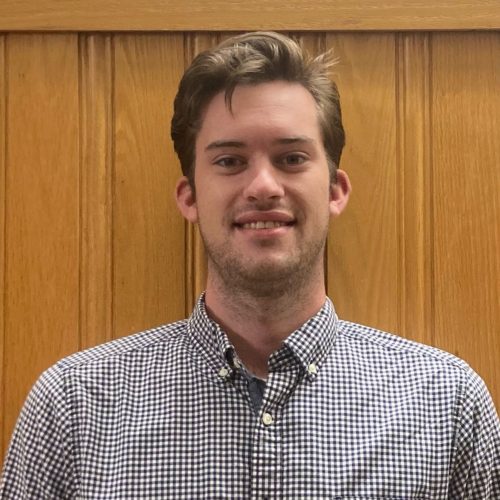
Will Haury graduated from the University of Pennsylvania in 2021 with a B.A. in Neuroscience. His previous work experience includes molecular genetics and behavioral neuroscience. As an
undergraduate, he studied the effects of FOG2 protein on coronary artery disease in the Rader Lab here at Penn. More recently, Will conducted an independent study in the Eisch Lab at the
Children’s Hospital of Philadelphia to study oxycodone dependence – more specifically to investigate the role of hippocampal circuitry on relapse propensity in rodents. In his free time, Will enjoys spending time with his dog and playing golf.

William Smisko graduated from SUNY Binghamton in 2021 with a Bachelor of Science in Ecology, Evolution, and Behavioral Science. His previous work includes forest ecology, migratory bird research, and biogeochemistry. In the lab Will is part of the Autism Spectrum Program for Excellence (ASPE) looking at several human orthologs in C. elegans, and their response to FDA approved drugs. Outside of the lab you can find Will birding, taking pictures of the night sky, or cooking.
Clinical Research Coordinators

Holly C. Dow, B.S., is a Research Specialist and Laboratory Manager at the University of Pennsylvania. She has 17 years of research experience working for Dr. Brodkin. Holly’s work has focused on the neurobiology of social behaviors in mouse models related to ASD. Currently, she has completed training as a Clinical Research Coordinator and has been working as part of the ASPE Study Recruitment Team.

Maya Rajan is a Clinical Research Coordinator on the ASPE study. She graduated from the University of Pennsylvania in 2022 with a Bachelor’s in Neuroscience and a minor in American Sign Language & Deaf Studies. During her undergrad at Penn, Maya worked as a Research Assistant in the Brodkin Lab where she examined quantitative autism traits and completed her Neuroscience Thesis looking specifically at the phenotypes of individuals with NRXN1 variants.

Rose Rasty is a Clinical Research Coordinator at the University of Pennsylvania, where she is engaged in research within Dr. Edward Brodkin’s lab. She earned her Bachelor of Arts in Neuroscience from the University of Pennsylvania. Throughout her undergraduate years, she played an active role as a research assistant in Dr. Brodkin’s lab, and she successfully completed an honors thesis that focused on the study of social functioning in adults with autism.

Chandni Shah is a Clinical Research Coordinator for the ASPE study. She graduated from UPenn in ’22 with a Bachelor’s degree in Neuroscience and minors in Chemistry and Healthcare Management. As an undergraduate student, Chandni worked as a Clinical Research Assistant in the Brodkin Lab, where she studied and helped carry out a novel social functioning program for adults on the autism spectrum. As a Clinical Research coordinator, she works on ASPE recruitment and phenotyping, focusing on methods to outreach to diverse groups in the autism community, in hopes to increase access and equity in autism research. She will also continue working on programs to help support social functioning in people on the autism spectrum.

Zoe Smernoff is a Clinical Research Coordinator on the ASPE Study. She graduated from the University of Pennsylvania with a Bachelor’s degree in Neuroscience. While at Penn, Zoe worked as a Research Assistant in the Brodkin Lab where she studied quantitative autistic traits and their interactions with various psychological constructs.

